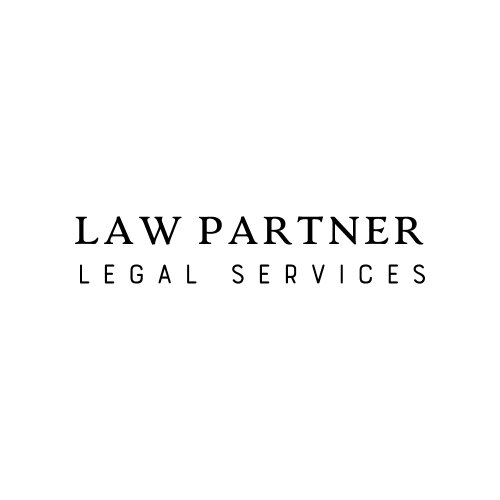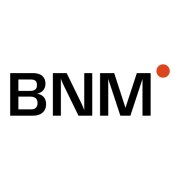Best Structured Finance Lawyers in Republic of Lithuania
Share your needs with us, get contacted by law firms.
Free. Takes 2 min.
Or refine your search by selecting a city:
List of the best lawyers in Republic of Lithuania
About Structured Finance Law in Republic of Lithuania
Structured finance is a complex area of financial law that involves the pooling of financial assets and the issuance of securities to investors. In the Republic of Lithuania, structured finance transactions are primarily used by corporations, financial institutions, and government entities to access capital and manage financial risk. These arrangements commonly include securitizations, collateralized loan obligations, and asset-backed securities. Lithuanian structured finance law is shaped both by local regulations and European Union directives, ensuring robust investor protection, transparency, and compliance standards within all transactions.
Why You May Need a Lawyer
Engaging in structured finance transactions can present both opportunities and challenges. You may need a lawyer for the following reasons:
- To structure and document complex financing arrangements involving multiple parties.
- To ensure compliance with Lithuania's and EU's banking, securities, and regulatory requirements.
- To assess and mitigate risks associated with the transfer and securitization of assets.
- To resolve disputes that may arise during the course of a structured finance transaction.
- To provide representation during negotiations with counterparties, regulators, or investors.
- To clarify tax implications and ensure proper structuring from a tax perspective.
- To guide international investors and financial institutions through Lithuanian legal frameworks.
Given the technical nature of structured finance, legal counsel is essential for safeguarding interests, negotiating favorable terms, and avoiding regulatory pitfalls.
Local Laws Overview
Key aspects of Lithuanian law relevant to structured finance include:
- Financial Instruments: Governed by the Law on Markets in Financial Instruments, these rules outline requirements for issuing, trading, and disclosing securities created in structured finance transactions.
- Banking and Financial Regulation: The Bank of Lithuania oversees financial institution conduct and compliance, including licensing and reporting rules affecting structured finance products.
- Securitization Law: Lithuania aligns its securitization framework with EU Regulation (EU) 2017/2402, which sets out requirements to enhance transparency and investor protection in securitizations.
- Collateral and Security Interests: The civil code regulates the creation, perfection, and enforcement of security interests on assets used in structured deals.
- Taxation: Structured finance instruments may trigger specific tax consequences, and legal advice is essential for compliance with Lithuanian tax rules and EU Directives.
- Anti-Money Laundering (AML): Participants in the structured finance market are required to adhere to strict AML and know-your-customer (KYC) protocols to prevent illicit use of financial instruments.
These legal frameworks ensure that structured finance transactions are conducted transparently, safely, and in accordance with both local and EU-wide standards.
Frequently Asked Questions
What is structured finance?
Structured finance is a form of financing involving complex legal and financial arrangements, typically used to pool financial assets and distribute associated risks among investors through products such as asset-backed securities and securitizations.
Is structured finance regulated in Lithuania?
Yes, structured finance is regulated by both Lithuanian laws and European Union regulations. Oversight is provided by the Bank of Lithuania and other financial market authorities.
Which laws apply to structured finance transactions?
Key laws include the Law on Markets in Financial Instruments, the Civil Code, tax legislation, AML regulations, and EU Regulation (EU) 2017/2402 on securitization.
Who can participate in structured finance transactions?
Typically, banks, financial institutions, corporations, government entities, and sometimes large investors participate, but retail investors may be excluded from certain products due to complexity and risk.
What are the risks involved in structured finance?
Risks include credit risk, market risk, operational risk, legal and regulatory risk, and the potential for lack of market liquidity in the securities issued.
Do structured finance transactions require regulatory approval?
Certain transactions, particularly those involving public offerings or cross-border transfers, may require approvals or notifications to regulatory authorities such as the Bank of Lithuania.
How are assets securitized in Lithuania?
Assets can be securitized by transferring them to a special purpose vehicle, which then issues securities backed by those assets. Legal formalities, registration, and disclosure requirements must be met.
Are there tax implications for structured finance?
Yes, tax consequences can result from structuring and investing in these transactions. Tax advice should be sought to ensure compliance and to optimize transaction structure.
What protections exist for investors?
Investor protections are built into Lithuanian law and EU regulations, requiring disclosure, transparency, and due diligence for structured finance products.
Can foreign entities participate in Lithuanian structured finance deals?
Yes, though they must comply with Lithuanian and EU regulations. Cross-border transactions may have additional legal and tax considerations.
Additional Resources
If you need guidance or further information on structured finance in the Republic of Lithuania, consider the following resources and organizations:
- Bank of Lithuania - the regulatory authority for financial markets
- Lithuanian Financial Markets Institute - professional body for market participants
- Ministry of Finance of the Republic of Lithuania - information on financial legislation
- Lithuanian Bar Association - directory of licensed legal professionals in finance
- European Banking Authority - for EU-level regulations on securitization
Next Steps
If you believe you need legal assistance with a structured finance matter in Lithuania, consider the following steps:
- Gather all relevant documents and information regarding your intended or current transaction.
- Identify your main concerns and the outcomes you wish to achieve.
- Consult with a specialist lawyer experienced in structured finance and financial regulation.
- Ask for a clear explanation of fees and services before engaging any legal professional.
- Ensure your selected adviser has experience with cross-border transactions if your deal involves international elements.
Seeking early legal advice can help you avoid costly mistakes and ensure the success and legality of your structured finance activities in Lithuania.
Lawzana helps you find the best lawyers and law firms in Republic of Lithuania through a curated and pre-screened list of qualified legal professionals. Our platform offers rankings and detailed profiles of attorneys and law firms, allowing you to compare based on practice areas, including Structured Finance, experience, and client feedback.
Each profile includes a description of the firm's areas of practice, client reviews, team members and partners, year of establishment, spoken languages, office locations, contact information, social media presence, and any published articles or resources. Most firms on our platform speak English and are experienced in both local and international legal matters.
Get a quote from top-rated law firms in Republic of Lithuania — quickly, securely, and without unnecessary hassle.
Disclaimer:
The information provided on this page is for general informational purposes only and does not constitute legal advice. While we strive to ensure the accuracy and relevance of the content, legal information may change over time, and interpretations of the law can vary. You should always consult with a qualified legal professional for advice specific to your situation.
We disclaim all liability for actions taken or not taken based on the content of this page. If you believe any information is incorrect or outdated, please contact us, and we will review and update it where appropriate.
Browse structured finance law firms by city in Republic of Lithuania
Refine your search by selecting a city.















